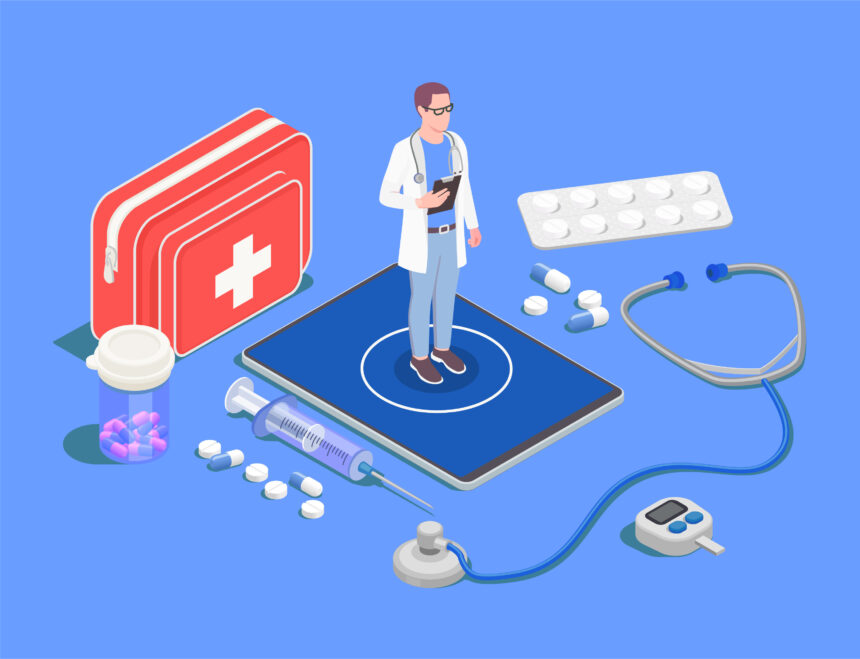Non-Fungible Tokens (NFTs) have taken the world by storm, revolutionizing the digital landscape across various industries. While NFTs are often associated with art and collectibles, their potential goes beyond traditional boundaries. In South Africa, innovators are harnessing the power of NFTs to make a significant impact on the realm of health and digital wellness. By combining blockchain technology, digital assets, and healthcare, South African pioneers are exploring new frontiers in promoting well-being, enhancing medical services, and advancing healthcare accessibility.
Digitalizing Health Records with NFTs
One of the critical areas where NFTs are making a difference in South African healthcare is the digitization of health records. Historically, medical records have been paper-based, leading to inefficiencies, data loss, and difficulty in information sharing. NFTs offer a secure and decentralized solution for storing and accessing health records. By tokenizing patient information, medical histories, and diagnostic data, NFTs ensure the integrity, privacy, and interoperability of health records. This digitalization enables seamless collaboration between healthcare providers, empowers patients to have greater control over their health data, and facilitates faster and more accurate diagnoses.
Promoting Wellness through NFT-backed Digital Assets
South African innovators are also leveraging NFTs to encourage healthier lifestyles and incentivize positive behaviors. By creating digital assets linked to wellness achievements, individuals can be rewarded for meeting specific health goals. These assets can range from virtual badges and certificates to unique digital items that hold real-world value. For instance, a person who achieves a certain fitness milestone may receive an NFT that can be redeemed for discounts on gym memberships, wellness products, or even donated to charity. This gamification of health and wellness not only motivates individuals to make healthier choices but also fosters a sense of community and friendly competition.
Empowering Patients and Philanthropy
NFTs are transforming the traditional fundraising landscape by providing innovative ways to support healthcare initiatives. South African healthcare organizations and charities are utilizing NFTs to raise funds for medical research, community health programs, and treatment accessibility. These organizations can mint limited-edition NFTs representing unique digital artworks, experiences, or collectibles. Supporters can purchase these NFTs, knowing that their contributions are directly impacting the healthcare sector. This philanthropic use of NFTs not only helps raise funds but also raises awareness about health issues, promotes social responsibility, and encourages active participation in improving healthcare outcomes.
Enhancing Medical Education and Research
NFTs are emerging as a powerful tool for medical education and research in South Africa. Medical institutions can create and distribute NFT-based educational resources, such as virtual simulations, medical textbooks, and lecture materials. These digital assets can be owned, traded, and accessed by medical professionals, students, and researchers, providing an innovative and interactive learning experience. Additionally, NFTs can facilitate the sharing and validation of medical research findings, ensuring transparency, traceability, and intellectual property protection.
Challenges and Considerations
While the integration of NFTs into healthcare presents exciting possibilities, there are important challenges and considerations to address. Ensuring data privacy and security is crucial, as health information is highly sensitive and must be protected from unauthorized access. Additionally, addressing the digital divide to ensure equitable access to NFT-based health services is essential, particularly in underserved communities. Collaboration between technology experts, healthcare professionals, and policymakers is necessary to develop robust frameworks, standards, and regulations governing the use of NFTs in healthcare.
Conclusion
South African innovators are at the forefront of utilising NFTs to transform the healthcare landscape. Through the digitisation of health records, incentivizing wellness, empowering patients and philanthropy, and enhancing medical education and research, NFTs are revolutionising the way we approach digital wellness. While challenges remain, the potential for NFTs to improve healthcare accessibility, promote well-being, and advance medical services is undeniable. As South Africa continues to push the boundaries of digital innovation in healthcare, the integration of NFTs paves the way for a healthier and more connected future.










